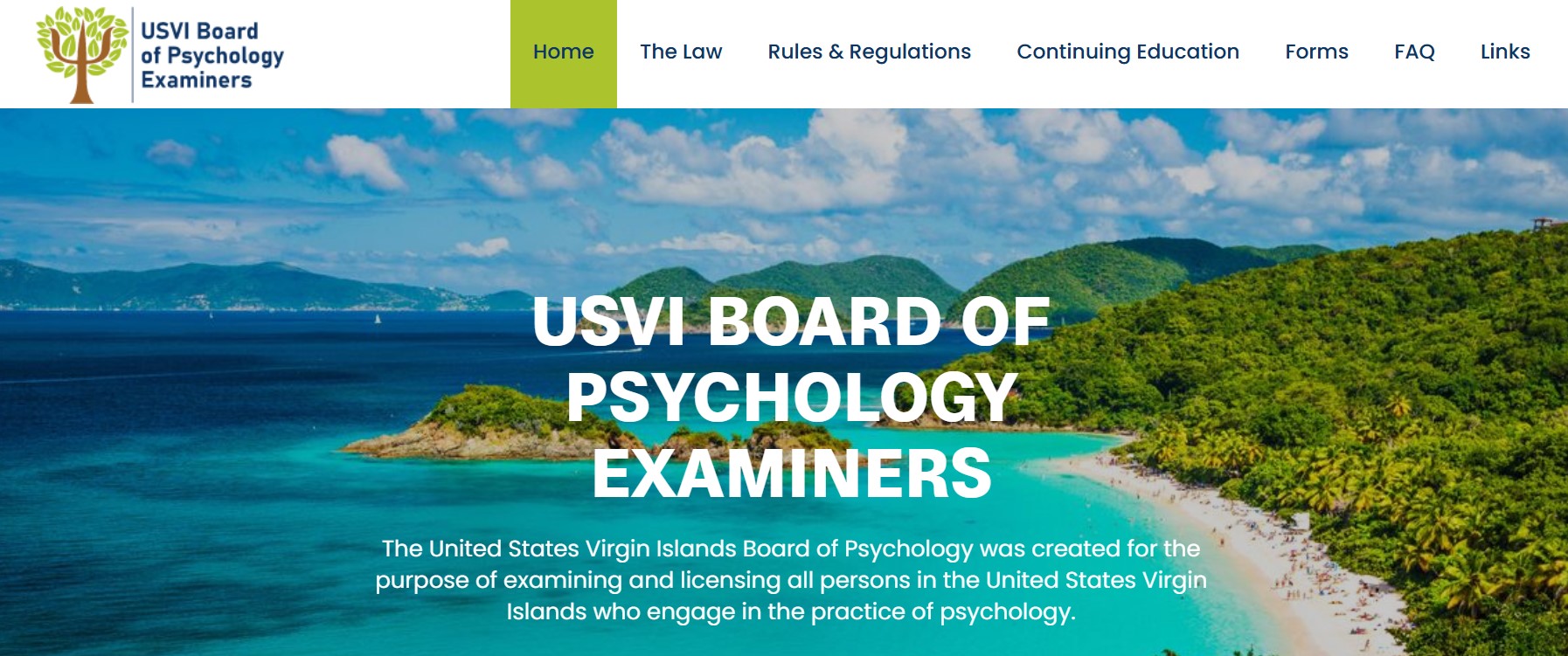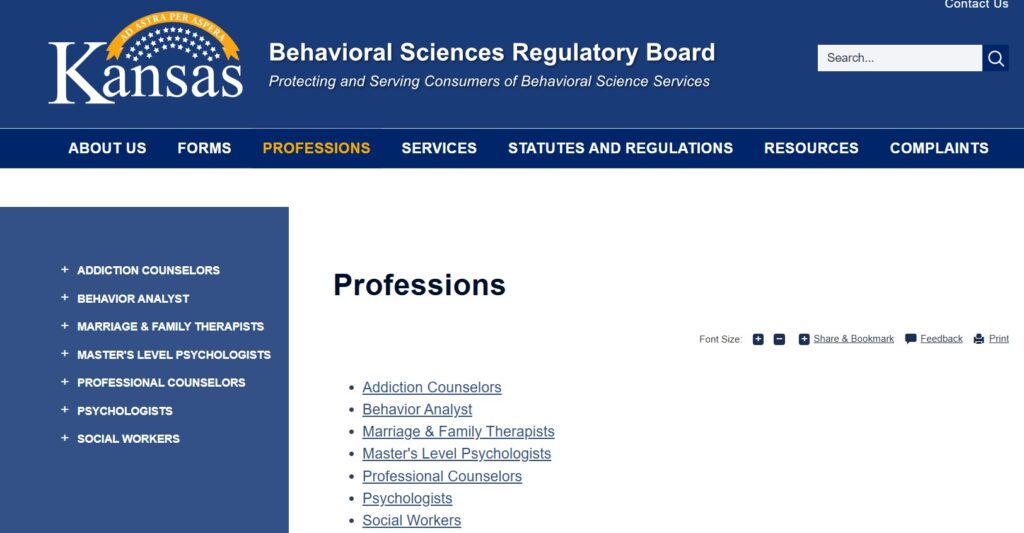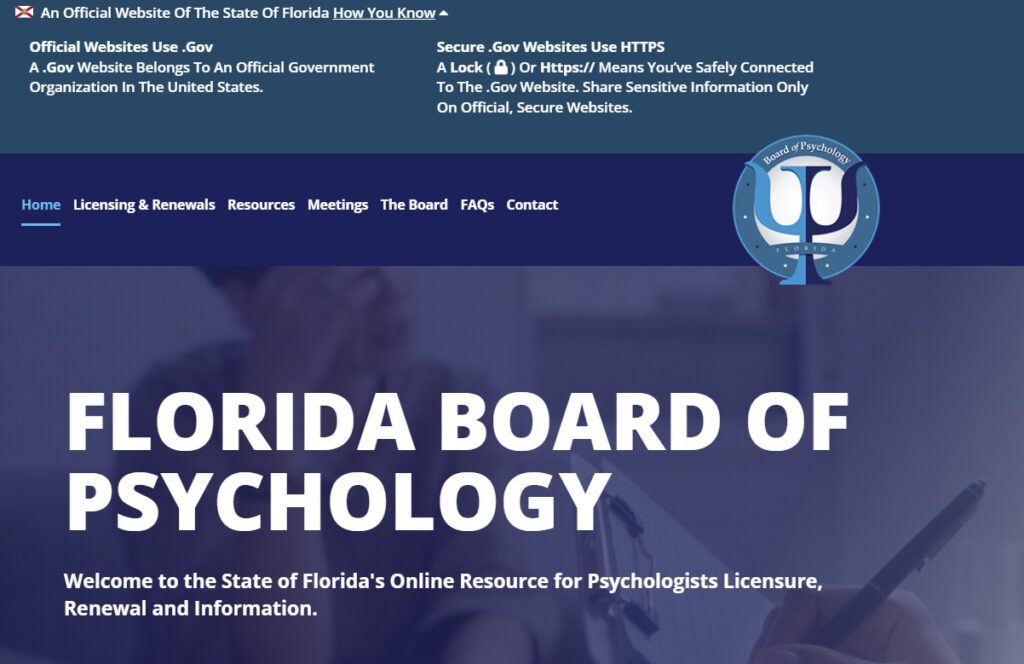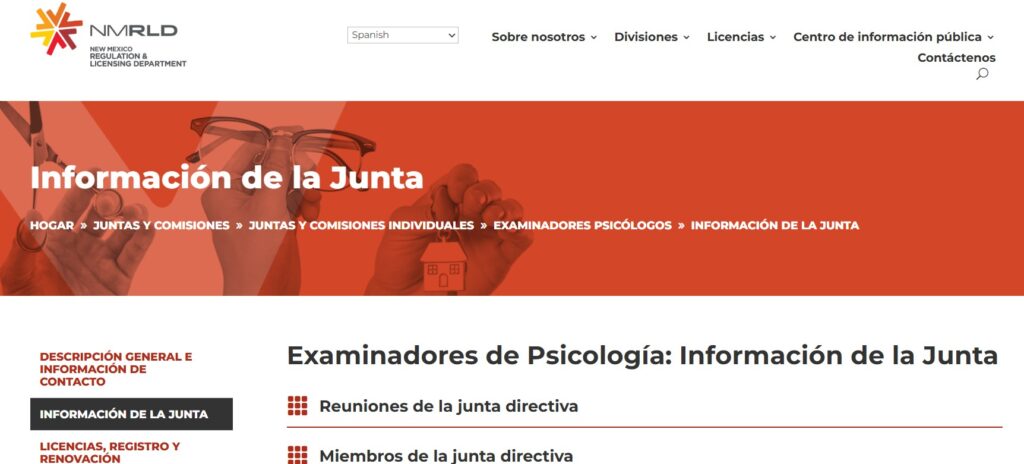Setting the Standard: Ten ASPPB Jurisdictions Leading the Way in User-Friendly Psychology Licensure Websites

Best Practices , Board Spotlights
Psychologists navigating the path to licensure, renewal, or regulation understand and value the importance of accessing clear, accurate, and up-to-date information. The 66 jurisdictions that comprise the Association of State and Provincial Psychology Boards (ASPPB) have made remarkable strides in supporting this need through well-designed, intuitive websites that empower professionals with the necessary resources. Whether serving a single profession or managing multiple fields, these member jurisdictions demonstrate how thoughtful digital infrastructure can enhance regulatory transparency and accessibility.
This article spotlights ten ASPPB member websites that stand out for their exceptional usability. From mobile responsiveness and language accessibility to reader-focused features and comprehensive resources, these platforms reflect a commitment to professionalism, public protection, and user support.
Accessibility and Mobile Optimization
In an increasingly mobile world, accessibility is key. The Florida Board of Psychology is a prime example of a mobile-responsive, user-centric website. Large icons, prominent navigation buttons, and collapsible menus adapt seamlessly to smartphone and tablet screens, ensuring that users can find licensing information or renewal instructions on the go.

Similarly, the United States Virgin Islands Psychology Board offers a mobile-optimized site with streamlined navigation and quick access buttons for applications, laws, and board updates. Its intuitive homepage layout eliminates unnecessary clicks, expediting access to resources.
The Ohio Board of Psychology also shines in terms of accessibility. Key notices and news items scroll dynamically across the homepage, while high-contrast design and clean formatting enhance readability for users with visual impairments. The website effectively implements keyboard navigation and screen-reader compatibility throughout.
Reader-Friendly Features and Structured Navigation
For websites with multiple professions under their purview, clarity and organization are critical. The Kansas Behavioral Sciences Regulatory Board oversees various disciplines while maintaining a clear path for psychologists to follow. Each profession has a dedicated section, complete with licensure types, forms, and frequently asked questions. Its use of expandable tabs, anchor-linked headings, and downloadable checklists enhances the user journey.

The South Carolina Board of Examiners in Psychology also operates within a broader state licensing portal, yet its psychology section is easily discoverable and richly detailed. Users are presented with clear categories like licensure, laws, renewals, and disciplinary actions. Well-labeled PDFs and a consistent left-hand menu structure contribute to a smooth browsing experience.
The Alabama Board of Examiners in Psychology (ABEP) exemplifies a straightforward site structure. With quick links to license applications, board rules, and upcoming meetings on the homepage, the site minimizes navigation time and maximizes efficiency. ABEP’s Executive Director, Lori Rall, is at the helm of the improvements seen on the website, addressing not only the user-friendliness of the site but also focusing on customer service.
ABEP’s website will offer more in the near future. “Our team is always looking for new ways to build upon our existing work, and we welcome suggestions from our users and the public. We maintain a list of items to implement and will post guidance for psychology professionals in the future on subjects such as professional wills, retirement planning, and best practices.”
Comprehensive Legal and Practice Resources
Robust regulatory resources are essential for psychologists seeking to maintain compliance. The Georgia State Board of Examiners of Psychologists integrates legal codes and rulebooks directly on its site, with clearly dated updates and embedded links to relevant legislation. Users can track proposed rule changes and view past meeting minutes—essential tools for engaged professionals. In addition, the Georgia State Board of Examiners of Psychologists outlines events and meetings, offers guidance on Continuing Education, and provides a path to licensure through various checklists.
The Ohio Board of Psychology provides not only its laws and rules but also links to national professional standards and model laws. This information facilitates a more precise understanding for psychologists of how state regulations align with broader professional expectations. The site also offers a robust area with Telepsychology resources.
The New Mexico Board of Psychologist Examiners houses its rules, license types, meeting agendas, and disciplinary history in a single streamlined section. The inclusion of a license lookup tool further supports transparency and public trust. Board meetings are accessible to the public via Teams.
Licensing Tools and Self-Service Features
Modern regulatory websites are moving toward empowering applicants and licensees with self-service tools. The Florida Board of Psychology portal enables online applications, renewals, and complaint filing—all from a single login. Email subscriptions and automated alerts keep users informed of changes without requiring them to frequently check the site. Additionally, this portal prioritizes safety on its main page by enabling users to verify that they are viewing an official website, thereby minimizing risks.

In Kansas, the Behavioral Science Regulatory Board (BSRB) site features detailed process charts for initial licensure, renewals, and supervision, allowing candidates to understand timelines and requirements at a glance. These guides help reduce confusion and minimize delays in the application process. The BSRB site manages licensure for several professions. Psychologists can easily research application packets, reciprocity, renewals, fees, and other relevant information.
South Carolina’s Board of Examiners in Psychology site also allows online renewals and licensure verification, with intuitive prompts guiding users step by step. Each license type includes its own specific requirements, forms, and contact information, making it easy for psychologists to take the necessary action. The site also provides information on continuing education, exam registration requirements, links to study materials, and handbooks.
Transparency and Public Protection
The value of user-friendly websites extends beyond psychologists to the public they serve. Licensing lookup tools, disciplinary records, and consumer protection resources build trust and enable the public to make informed decisions.
The College of Alberta Psychologists (CAP) maintains a searchable public registry that includes licensee status and any applicable practice restrictions. It also includes recent disciplinary decisions. This fosters both accountability and transparency, building confidence in the profession. In addition, publication of professional conduct decisions serves both specific and general deterrence objectives. Professional conduct inquiries are received both digitally and orally.
Dr. Richard Spelliscy, CAP’s Registrar and Chief Executive Officer, noted, “Our website also identifies key regulatory documents such as standards of practice that guide the profession. Both regulated members and the public can access the most current regulatory information. Those seeking to enter the profession can view all the information required to make an application to the College. Everything can be done electronically.” The site also offers information for internationally trained psychologists seeking to relocate.
The College of Health and Care Professionals of British Columbia, which regulates eight professions in addition to psychologists, takes it a step further when it comes to underscoring confidence in the profession by displaying complaint history in some cases and offering education on what to expect from a regulated professional.
In the U.S., the U.S. Virgin Islands Board of Psychology Examiners offers a similar public verification tool, ensuring that clients can confirm the standing of a practitioner before engaging their services. Additionally, the website features a comprehensive list of resources, including links, guides, and frequently asked questions.
Language Accessibility, Member Access, and Inclusive Communications
Language accessibility is another area where some jurisdictions are excelling. The New Mexico Board of Psychologist Examiners offers bilingual options and documentation in both English and Spanish, reflecting the linguistic diversity of its population. Psychologists and applicants who are more comfortable in Spanish can access key forms and guidance without translation barriers, thereby fostering inclusion and compliance. Other language options are also accessible through a drop-down menu.

The College of Alberta Psychologists provides professional, clear communication that strikes a balance between regulatory tone and readability. While the content is in English, its layout and terminology are designed to be friendly to internationally trained professionals, supporting smoother transitions into Canadian practice for those educated abroad. Furthermore, all regulated members can access their member profiles from the website portal. This access includes modifying their member profile, paying all fees, and uploading continuing education documentation to support their membership. The College also offers a regulatory navigator for both regulated members and the public.
Dr. Spelliscy underscores that CAP has more in store, “The College is integrating Artificial Intelligence (AI) into our regulatory processes. As a first step, a ‘regulatory wizard’ has been created to fast-track information/data retrieval within the College. Plans include offering similar services outside the College to offer the public the opportunity to make real-time inquiries.”
British Columbia’s College of Health and Care Professionals features a sophisticated filtering system to support communication across multiple professions. Its professional directory, categorized by role and language spoken, supports both regulatory transparency and public engagement.
Conclusion: Models of Regulatory Excellence
Across these ten ASPPB member jurisdictions, a shared commitment to accessibility, transparency, and user-centered design is evident. Whether serving a single profession or multiple fields, each website highlighted here offers valuable lessons in how digital tools can support regulation, compliance, and public trust.
As the landscape of professional practice continues to evolve—with increasing reliance on remote services, cross-jurisdictional practice, and diverse applicant pathways—all of our 66 member websites are essential gateways to resources and information. Their thoughtful design and robust resources demonstrate the care with which regulators approach their mission: to protect the public, support licensees, and uphold the integrity of the psychology profession.
Related

A Separate Peace
The agendas involved in protecting the public versus promoting the profession can at times be at odds, but psychology boards and their professional associations can find collaborative overlaps that benefit both sides.
